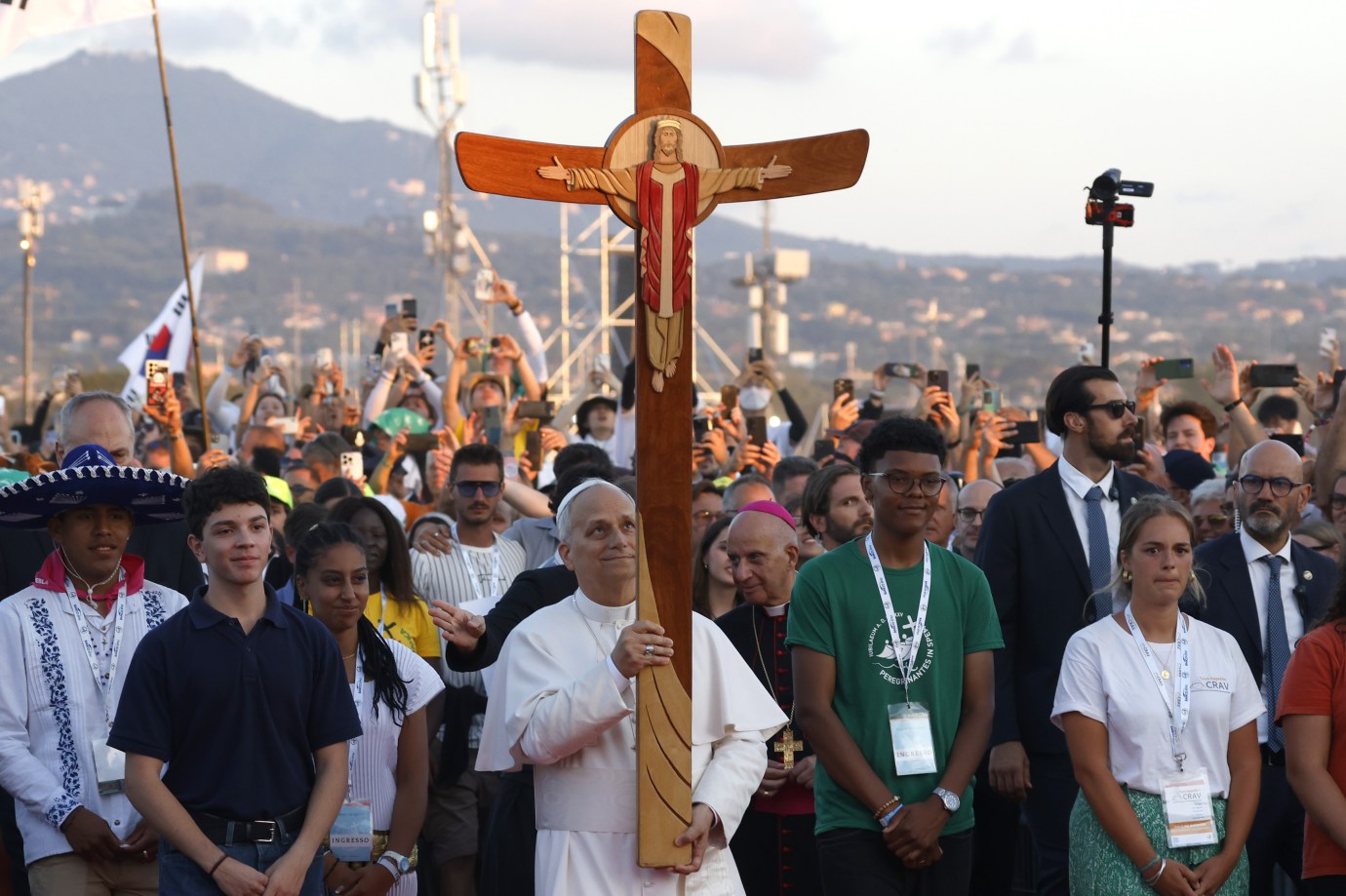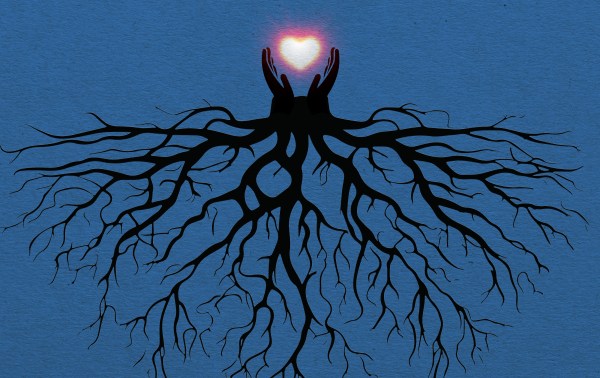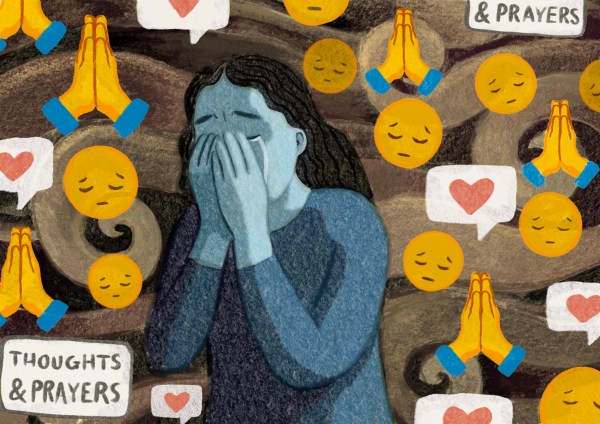Hi and welcome back to Dispatch Faith after a brief break.
For years, cartel violence and organized crime have plagued some locales in Latin America. While no one has been immune, religious leaders—who often are on the front lines in responding to the devastating effects of lawlessness and brutality—are now finding that they themselves are targets. This week, former State Department official and religious liberty advocate Knox Thames details their plight and the curious decisions some governments in Latin America have made that further imperil religious leaders.
Knox Thames: Organized Crime’s Newest Targets

The recent discovery of the bodies of eight murdered church workers in Colombia has garnered little international attention. But their deaths, after they had gone missing in early April, are indicative of a broader trend across parts of Latin America: criminal violence targeting religious leaders.
In an overlooked but metastasizing problem, Catholic, Protestant, and indigenous faith communities daily must navigate lawlessness and violence. While the basic solution is greater police protection, criminal networks constantly evolve and create complex, unstable environments throughout various parts of the region. Durable solutions will require a renewed commitment to security, combined with partnerships with congregations and faith-based groups.
Violent religious persecution is rare in the Americas, both North and South. Our hemisphere is thankfully free from persecution on a scale seen today in places like China. But limitations on religious freedom do exist in authoritarian countries such as Cuba and Nicaragua.
Nicaragua’s slide into autocracy over the past eight years has coincided with a decline in religious freedom. The Ortega regime uses both intimidation and arrests to silence Christian activists protesting their oppression. For instance, the regime has forced hundreds of Christian ministries to close, including Catholic universities and lay groups, as well as evangelical and Pentecostal ministries. Two years ago, dozens of Catholic priests were arrested on trumped up charges and eventually exiled. In the same way, in authoritarian Cuba, the Communist government’s legal framework grossly restricts freedom of religion or belief, making it virtually impossible for new church groups to legally form. In addition, authorities surveil and harass religious leaders who refuse to toe the party line, with some pastors forced to flee the island.
With good reason, then, religious freedom advocates generally focus on these two nations in the Americas. For policymakers more broadly, issues of drug trafficking, migration, trade, and disintegrating rule of law absorb their attention in national capitals. As of December 2023, according to the United Nations Office on Drugs and Crime, the region has the highest proportion of homicides linked to organized crime globally. Unsurprisingly, Latin America was home to 40 of the world’s 50 most violent cities last year.
However, many overlook the nexus between organized crime and religious freedom violations. Criminal violence, though sometimes indirect, also impacts freedom of religion or belief. In some parts of the region, crime rings and cartels victimize and exploit religious leaders, worshipers, and institutions through intimidation, extortion, and violence, causing displacement and fear. In several areas and cities, pastors, priests, and laity have become outright targets. Why? Because they represent obstacles to gang or cartel control over communities through their positive influence, encouraging youth and others to reject gang participation or criminal activities. In other words, they threaten gangs and cartels, not through their strength, but because they care for their neighbors.
The problem is multifaceted. The Observatory of Religious Freedom in Latin America (OLIRE), in partnership with the International Institute for Religious Freedom (IIRF), has tracked attacks against religious communities across the Americas. As OLIRE director Teresa Flores shared during a recent event sponsored by my research program, “Religious freedom is a multi-dimensional right with an important communal aspect to it. Organized crime limits or impedes this, both its individual and collective aspects.” Flores continued, “This limiting includes foundational freedoms connected to, or necessary for, the full enjoyment of freedom of religion or belief—such as movement, expression, worship, and assembly—to extreme instances of kidnappings, forced displacements, destruction of places of worship, and murders which have been documented across Latin America.”
Violence has reached alarming levels in Mexico, for example. The Catholic Multimedia Center (CCM, its Spanish acronym), under the brave leadership of Father Omar Sotelo Aguilar, has studiously tracked the violence since the early 1990s. According to the CCM, in the last six years, criminals murdered 10 priests, and another 14 priests and bishops were attacked, with a weekly average of 26 churches desecrated or assaulted. Criminals threaten priests and pastors while seeking religious buildings to store illegal weapons or drugs, which puts the lives of pastors and laity at risk. While the number of attacks on priests is not huge, each murder reverberates through the entire community, striking fear in many.
Similarly, religious leaders in Colombia are extremely vulnerable to attacks and killings. Colombia has fought a decades-long battle against the Revolutionary Armed Forces of Colombia (FARC) and its splinter groups. During this time, religious leaders, as representatives and defenders of their communities, have suffered. According to experts at CSW (formally known as Christian Solidarity Worldwide), “Hundreds of church leaders who have defied these restrictions and continued to carry out their work, either openly or clandestinely, have been targeted for assassination. Churches have also faced extortion from armed groups.”
The recent murder of church workers who disappeared in a remote region of central Colombia in early April demonstrates the vulnerability of faith leaders. These individuals were recently discovered in a mass grave, all from a hamlet near the town of Calamar, in the province of Guaviare. They had all obeyed personal summonses issued by an illegal armed group, from which they did not return. More recently, a Catholic priest disappeared under similar circumstances.
Many welcomed Colombian President Gustavo Petro’s condemnation of the killings and his expression of solidarity with the families and faith communities. His “urgent” call was correct that state institutions must “redouble their efforts to protect those who lead through faith, care for others, and peace. It is the state’s duty to ensure their safety and to guarantee that these crimes are neither repeated nor go unpunished.” He has also expressed his support for freedom of worship.
Holding perpetrators legally accountable is a crucial yet difficult promise to fulfill in fragile states—especially in Colombia due to a combination of limited police capacity, constrained resources, and remote areas infiltrated by the FARC. However, the Colombian government can restore protections for religious leaders. The central legal framework for the protection of human rights defenders in Colombia is Decree 1066, which can make available a range of government assistance from bullet proof vests and panic buttons to body guards and armored cars. Before its recent amendment, it included a specific protocol addressing the unique security needs of religious leaders. Decree 1066, because of this collective approach to security, garnered praise from the United Nations Special Rapporteur on human rights defenders.
But in 2023, the Colombian government reversed course through a presidential decree that removed religious leaders as a protected category, thereby ending their specific access to security measures. It is unclear why they were removed. Reversing these changes so that religious leaders are once again listed as a category of high-risk individuals and granted specific security measures would help ensure the safety of religious leaders. And it would reassure many after the recent murders.
While we will never know if these protections would have saved the Colombian church workers, it is clear that religious leaders in Colombia and other Latin American countries need more protection, not less. Policymakers must confront the impact of organized crime and cartel activity on religious communities. Ignoring or overlooking this new threat will further destabilize the region. Religious groups, vital for social stability, are the glue holding their communities together in the face of violence and instability. An issue this complex requires a comprehensive approach that partners with religious freedom advocates and congregations across the region.
Thomas S. Kidd: How the Second Great Awakening Helped Make America

Though we may be living in a period of monumental religious shifts, the Second Great Awakening of the late 18th and early 19th centuries proved fundamental to the religious landscape in the U.S. today. For this week’s Next250 series essay, historian Thomas S. Kidd chronicles how the movement made America great (yes, the first time) and what a weakening of institutional Christianity may portend.
The Second Great Awakening built much of the religious infrastructure that still marks American towns and cities. Thus, if American Christianity collapses, it is that infrastructure that stands to fall. Baptist and Methodist churches still dominate the American Christian landscape. Despite a decades-long pattern of declining membership, the Southern Baptist Convention remains by far the nation’s largest Protestant denomination.
Everyone knows that churches do not lack for scandals, political excesses, and toxic environments. Entire segments of the entertainment industry and academia are devoted to exposing and amplifying the worst aspects of evangelical culture, in particular.
But remember what would also vanish if American Christianity disintegrated: the dense bonds of friendship, the moral guidance, the quiet prayers of support, and the markers of life’s most important moments (births, marriages, deaths). These features of congregational life are far more pervasive than scandals, as dismaying as those might be. Most importantly from a Christian perspective, churches answer the great existential question of how one can find forgiveness and be at peace with God.
More Sunday Reads
Michael Wear’s piece in UnHerd this week isn’t explicitly religious or faith-centric, but in many ways the former Obama administration official and founder of the Center for Christianity and Public Life is calling for Democrats to drop their do-as-Donad-Trump-does mentality and consider addressing more fundamental—perhaps even metaphysical—questions in future campaigns: “Likewise, instead of accepting the unfettered advance of technological and business encroachments that promote antisocial behavior, Democrats ought to be the party that puts social well-being at the center of decision making. They should take New York Rep. Paul Tonko’s lead in seeking to rein in online sports gambling, a societal catastrophe everyone sees coming but acts helpless to prevent. Democrats should revisit their support for the legalization and public proliferation of marijuana in light of new scientific evidence of its harms; even if they do not go so far, their support for the legalization of marijuana must include a social analysis and policy attentiveness to the consequences of legalization. Does anyone really believe that the ubiquitous, public presence of marijuana or online sports gambling (as just two examples) have made our communities better, healthier or even more enjoyable? Similarly, it should not be assumed that the policy task at hand is to simply help Americans adjust to artificial intelligence. Instead, the development and utilization of AI should proceed in negotiation with the demands of a prosocial vision for our communities and nation. How do the American people want AI to affect their lives? Shouldn’t that question at least be on the table? Politics should pose and help answer that question, not just go along with the profit motive and technological prowess for their own sake. Some Democrats are taking steps to address AI’s effect on Americans’ jobs. But many more should be taking seriously the consequences AI might have for our humanity: for the way we relate to one another as social creatures.”
Religion in an Image










Please note that we at The Dispatch hold ourselves, our work, and our commenters to a higher standard than other places on the internet. We welcome comments that foster genuine debate or discussion—including comments critical of us or our work—but responses that include ad hominem attacks on fellow Dispatch members or are intended to stoke fear and anger may be moderated.
With your membership, you only have the ability to comment on The Morning Dispatch articles. Consider upgrading to join the conversation everywhere.